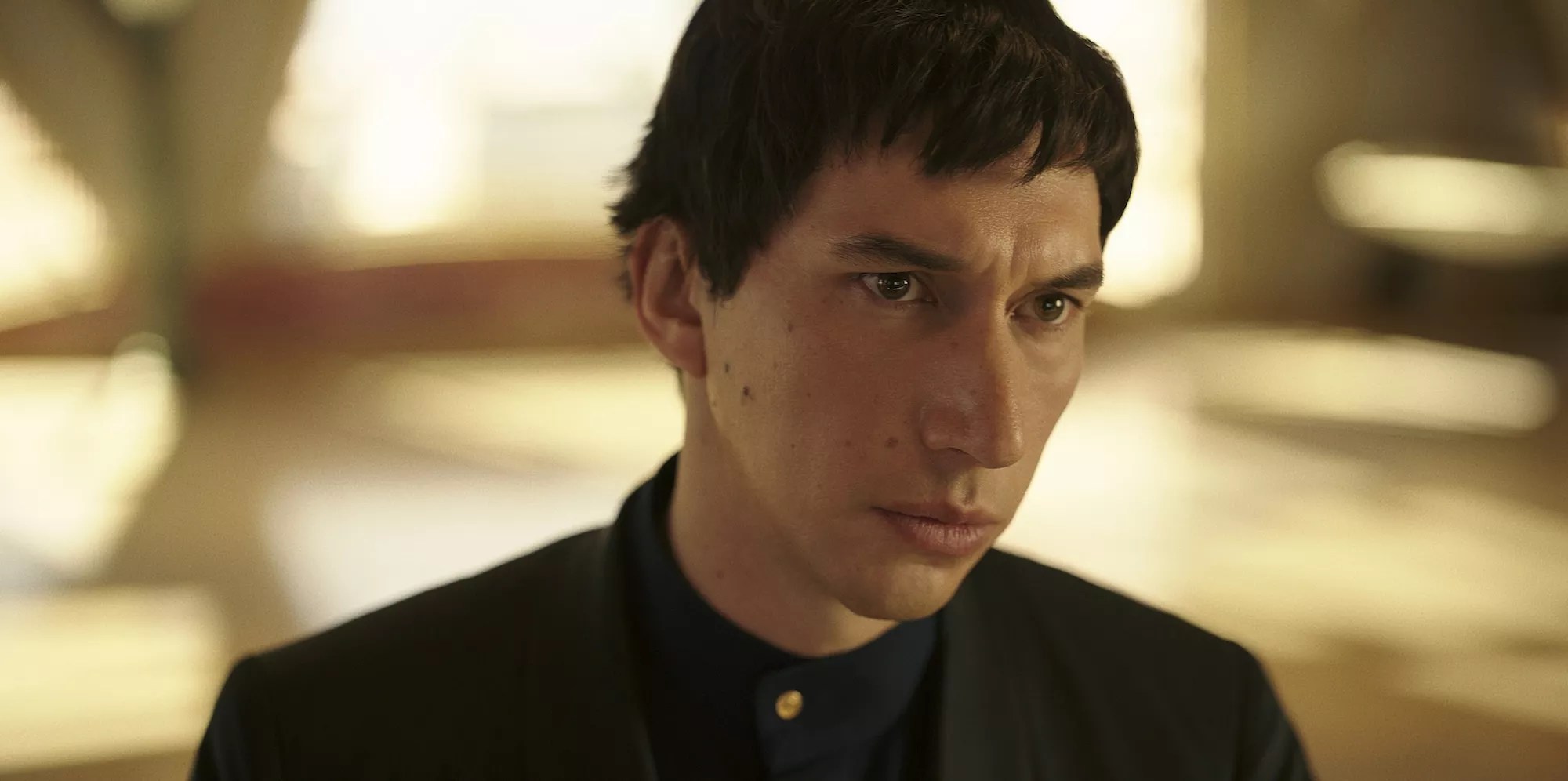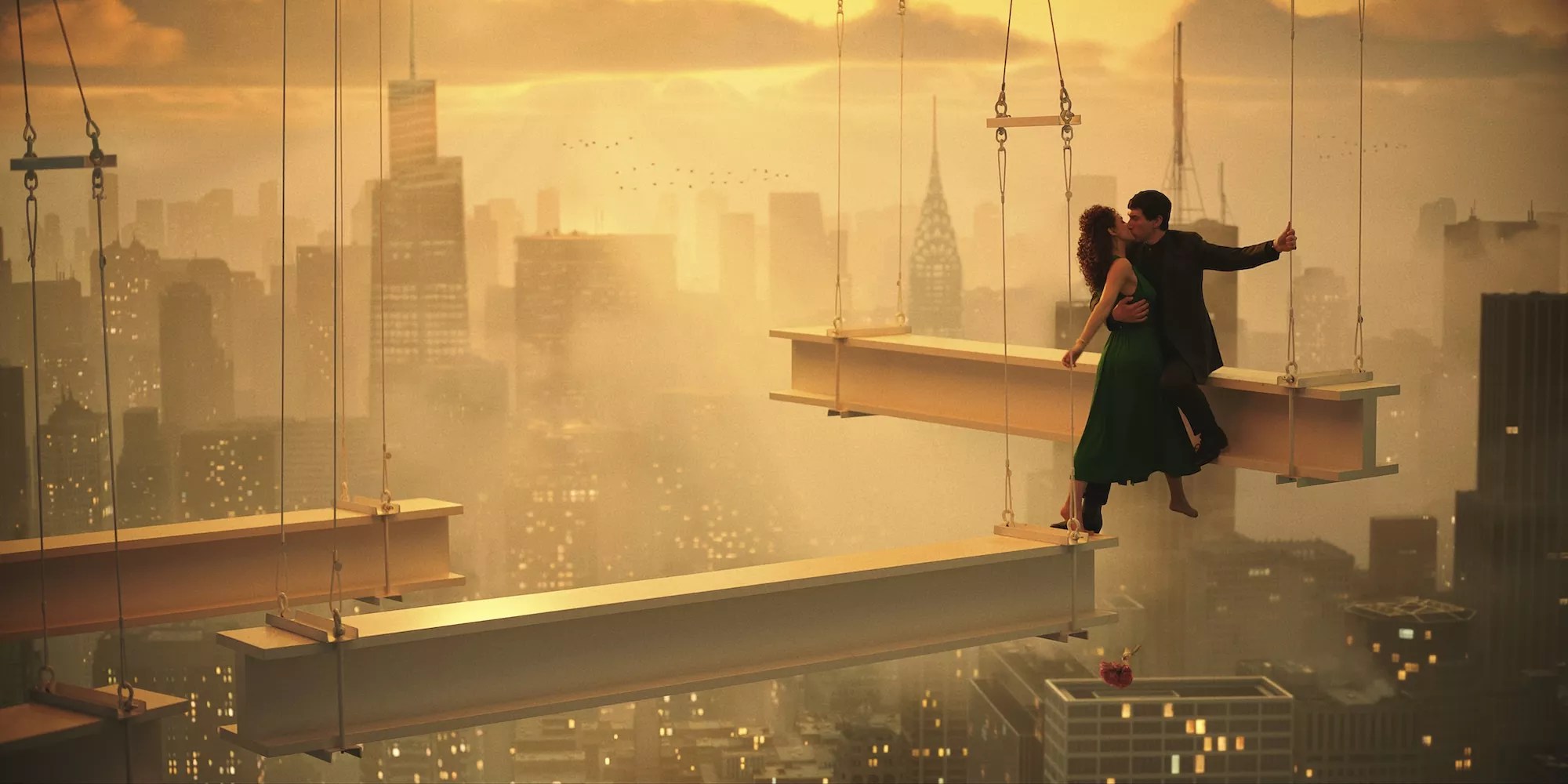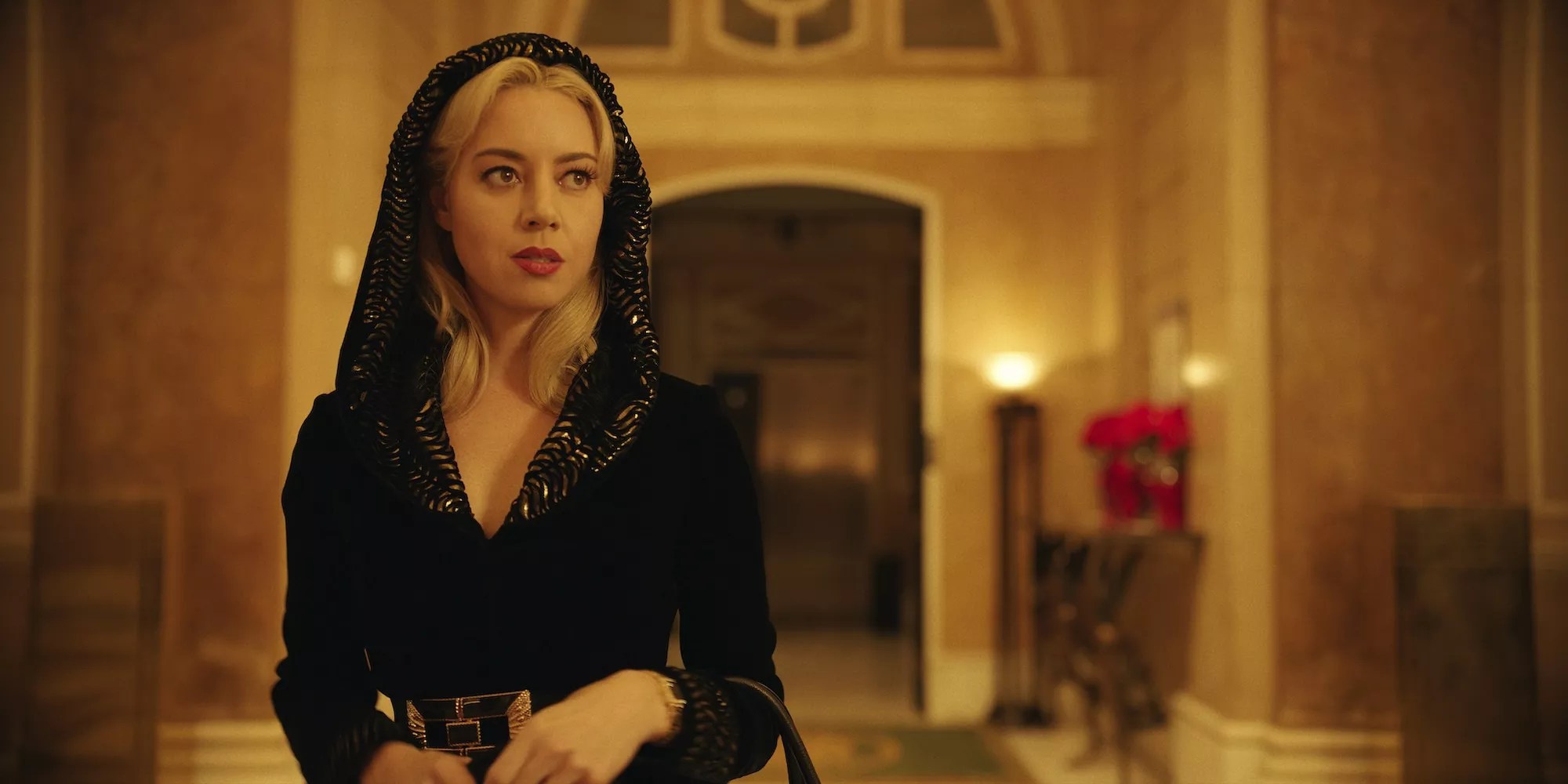
Lionsgate photo

Audio By Carbonatix
The subtitle “a fable” appears below every instance of Megalopolis‘ marketing, and it’s a necessary consideration. It’s a film that exists between reality and fantasy, between past and present, and it’s a pure, unfiltered glimpse into the mind of one of American cinema’s great filmmakers, Francis Ford Coppola.
Borrowing liberally from the fall of Rome and setting the events of the Catilinarian conspiracy of 63 B.C. in a sort of contemporary New York City (referred to as New Rome), the film follows a visionary architect, Cesar Catalina (Adam Driver) in his quest to build a utopia out of an endlessly malleable (and arguably magical) material named Megalon, and all of the individuals that seem determined to stop him from this grand dream. This is the film at its simplest, but Megalopolis is an unwieldy piece of cinema. It isn’t just in the seemingly endless collection of characters whose names one might forget or their nonsensical ploys for attaining power, but in how it bounces from scene to scene without a hint of interest in how the audience might keep up.
It’s impossible not to see Megalopolis as a direct product of Coppola’s experience in cinema, having to fund this passion project himself after decades of working on it. But it extends beyond that and into a clear showcase of his interests in art, theory, and history. This includes everything from 9/11 footage being woven in, a shot of Adam Driver lifting a copy of Siddhartha into frame, various Shakespeare passages being recited randomly, and obvious contemporary political discourses.
To some level, it’s a film that can be read like Coppola yelling at the clouds, commenting on anything and everything he deigns worth critiquing. Take the way his characters celebrate a musician’s virginity and punish her when she’s revealed as impure while engaging in bacchanalia all day long; it’s a clear critique of a conservative American tradition, even more so than Shia LaBeouf’s performance as a thinly veiled Trump metaphor.
Will you step up to support New Times this year?
At New Times, we’re small and scrappy — and we make the most of every dollar from our supporters. Right now, we’re $18,000 away from reaching our December 31 goal of $30,000. If you’ve ever learned something new, stayed informed, or felt more connected because of New Times, now’s the time to give back.

Nathalie Emmanuel and Adam Driver in Megalopolis
Lionsgate photo
Perhaps it’s all a bit naive, leaning into a certain kind of Randian objectivism at times, but there’s something all too charming about how much Coppola has faith in the possibility of beauty and change. His heart is clearly in the right place, and his politics are sometimes more potent than most films these days can muster, even diving directly into how monsters can easily co-opt political movements for their own benefit while preying on those most vulnerable. That Megalopolis is constantly asking whether or not a utopia can exist in a world that has grown complacent with the status quo is key, and this kind of question is even reflected in its formal touches.
Watching the world that Coppola and his collaborators have created is nothing short of breathtaking. He lets his actors deliver monologues uninterrupted like they’re on stage as much as he cuts to triptych split-screen montages that overwhelm with their beauty on an IMAX screen. The mixture of in-camera effects and clearly digitally constructed scenes is occasionally garish but never out of place. Where so many films aim for realism, Megalopolis is comfortable in the realm of imagination, embracing the artifice of cinema. It isn’t just in how the film has a scene where a random man steps into the audience to “talk to” the lead actor, but how much of the film is deliberately “fake” looking. If one can’t suspend their disbelief, they’ll have a harder time swallowing some of the aesthetic choices, but it’s easy to let go and fall in.

Aubrey Plaza in Megalopolis
Lionsgate photo
And so much of Megalopolis requires a letting go of expectation. It is a film that is fairly often completely ridiculous, particularly in how the characters act and speak. Take the women in the film: Not a single one is fleshed out beyond mother or whore, but they each perform with such a commitment to the role. Aubrey Plaza as Wow Platinum – a sex-crazed, gold-digging journalist who seems determined to claw at her ex-lover by marrying his uncle who manages banks – is intoxicatingly villainous, the kind of performance you can’t look away from. It’s the most outsized performance in the film and, ultimately, the most memorable in an ensemble that largely exists to recite whatever philosophy Coppola wants to cite.
Even amid miscalculations, I couldn’t help but fall hard for Megalopolis. It is a massive work that seeks to reconcile not just the entire history of mankind but Coppola’s own history. It’s a film loaded with a sense of regret and a fixation on what can’t be changed because of lost time while also maintaining a certain wide-eyed optimism for the future that can exist. From top to bottom, it’s the film of a man who knows he has only a finite amount of time left and decides to put everything his heart desires on screen. “There’s still so much to accomplish,” his characters say near the end, and you can tell Coppola himself believes so, not just about himself but about every person and artist out there. If this ends up being his final work, so be it; at least the man went out with a beautiful bang.
Megalopolis. Starring Adam Driver, Jason Schwartzman, Giancarlo Esposito, Dustin Hoffman, Aubrey Plaza, and Shia LaBeouf. Written and directed by Francis Ford Coppola. 138 minutes. Rated R. Opens in theaters Friday, September 27; check showtimes at miaminewtimes.com/miami/movietimes.